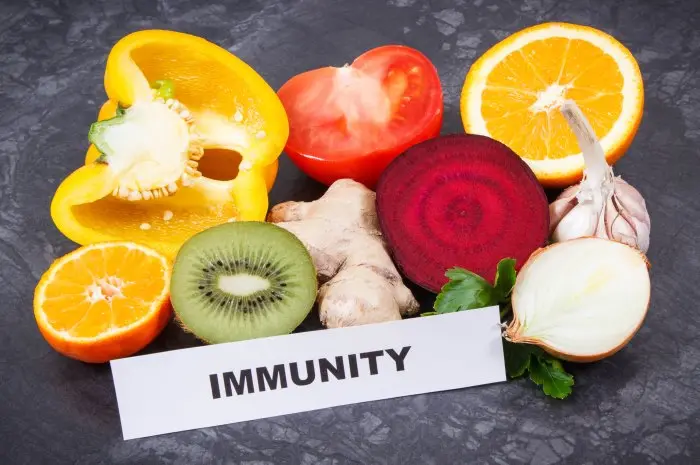Explore 11 nutritional choices that can boost your immune system, featuring foods rich in vitamins, minerals, and antioxidants essential for health and well-being.
In the quest for better health and disease prevention, your diet plays a crucial role, especially in strengthening your immune system.
A well-functioning immune system helps your body to fight off potential threats such as viruses, bacteria, and other pathogens.
Here are 11 nutritional choices that can help bolster your immune response and overall health.
1. Citrus Fruits
Citrus fruits like oranges, lemons, and grapefruits are high in vitamin C, a vitamin that increases the production of white blood cells, which are key to fighting infections.
Popular for its immune-boosting properties, vitamin C is also thought to increase the body’s ability to produce important antibodies.
2. Red Bell Peppers
Red bell peppers have nearly three times more vitamin C per ounce compared to a Florida orange.
In addition, they are an excellent source of beta carotene, which supports healthy skin and boosts the immune system’s ability to fight off infections.
3. Broccoli
Broccoli is packed with vitamins A, C, and E, along with fiber and numerous antioxidants. It stands out as one of the healthiest vegetables to include in your diet.
To preserve its full nutritional value, it’s best to cook it minimally, or ideally, not cook it at all.
4. Garlic
Garlic is a staple in cuisines around the globe, offering a flavorful kick to dishes and providing numerous health benefits.
Ancient cultures acknowledged its ability to combat infections. Additionally, garlic may help prevent the hardening of arteries, and although the evidence is limited, it may also assist in lowering blood pressure.
5. Ginger
Ginger is a common remedy people use when feeling unwell.
It has the potential to reduce inflammation, which can alleviate a sore throat and other inflammatory conditions. Additionally, ginger may help ease nausea.
6. Spinach
Spinach is not only a great source of vitamin C, but it is also loaded with antioxidants and beta carotene, which can enhance the immune system’s ability to combat infections.
Like broccoli, spinach is most nutritious when cooked minimally, helping it retain its beneficial nutrients.
7. Yogurt
Choose yogurts labeled with “live and active cultures,” such as Greek yogurt. These cultures may help boost your immune system to fight off illnesses.
It’s better to opt for plain yogurt over pre-flavored varieties that are often high in sugar. You can naturally sweeten plain yogurt by adding fresh fruits and a touch of honey.
8. Almonds
While vitamin C often steals the spotlight when it comes to preventing and fighting colds, vitamin E is also crucial for a strong immune system.
As a fat-soluble vitamin, it needs fat to be absorbed effectively. Almonds, rich in vitamin E and healthy fats, are an excellent source of this nutrient.
9. Sunflower Seeds
Sunflower seeds are packed with essential nutrients like phosphorus, magnesium, and vitamins B-6 and E.
Vitamin E plays a vital role in supporting and maintaining the immune system. Other foods rich in vitamin E include avocados and dark leafy greens.
10. Turmeric
Turmeric is often recognized as a key ingredient in curries, but this vibrant yellow, bitter spice has also long been used for its anti-inflammatory properties, particularly in treating osteoarthritis and rheumatoid arthritis.
Studies indicate that the high levels of curcumin, the compound responsible for turmeric’s distinct color, may help reduce muscle damage caused by exercise.
11. Green Tea
Green tea is rich in flavonoids, a type of antioxidant, and stands out for its high levels of epigallocatechin gallate (EGCG), a potent antioxidant that has been shown to boost immune function.
Unlike black tea, which loses much of its EGCG due to the fermentation process, green tea is steamed rather than fermented, helping to preserve its beneficial compounds.
Conclusion
Incorporating these foods into your diet can bolster your immune system and provide you with increased protection against various diseases.
While these foods can help your immune function, they can’t protect you from developing diseases alone.
It’s also crucial to maintain other healthy living strategies like exercising, staying hydrated, getting adequate sleep, and minimizing stress to help your body fight off illnesses.

